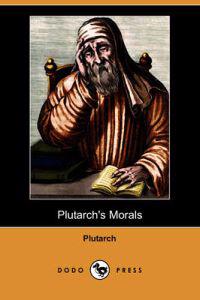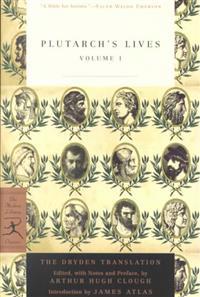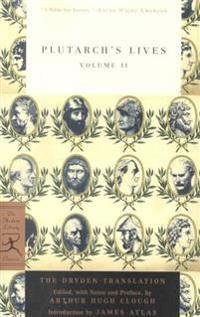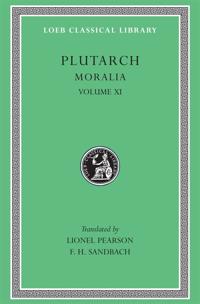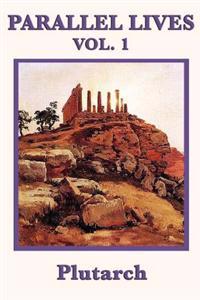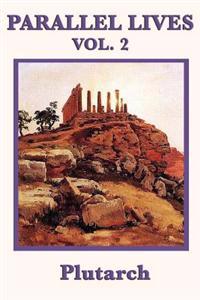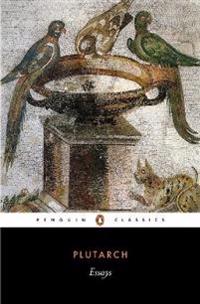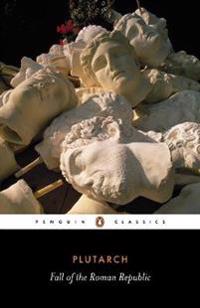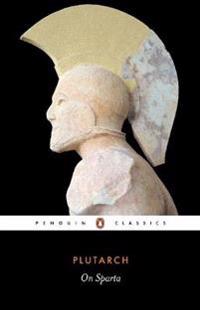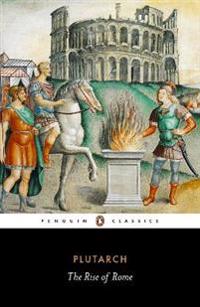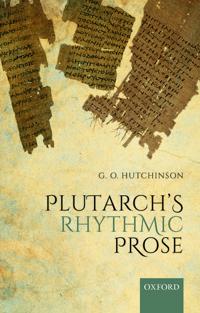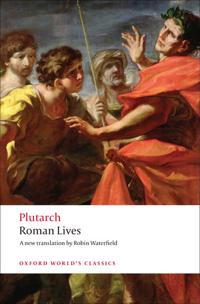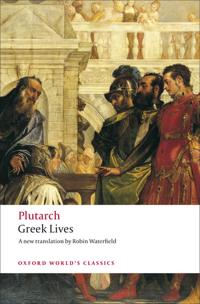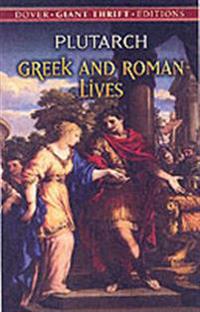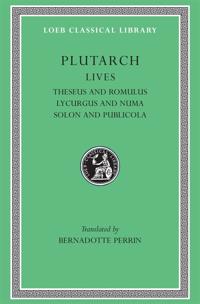PLUTARCH'S MORALS (Pocket)
avPlutarch, Arthur Richard (TRN) Shilleto, Plutarch
ISBN: 9781409940319 - UTGIVEN: 2009-01Plutarch's Advice to the Bride and Groom, and A Consolation to His Wife: English Translations, Commentary, Interpretive Essays, and Bibliography (Inbunden)
avPlutarch
ISBN: 9780195120233 - UTGIVEN: 1999-06-24Plutarch's Lives (Häftad)
avPlutarch, Arthur Hugh Clough
ISBN: 9780375756764 - UTGIVEN: 200105Plutarch's Lives, written at the beginning of the second century A.D., is a brilliant social history of the ancient world by one of the greatest biographers and moralists of all time. In what is by far his most famous and influential work, Plutarch reveals the character and personality of his subjec[...]
Plutarch's Lives (Häftad)
avPlutarch
ISBN: 9780375756771 - UTGIVEN: 200105Plutarch's Lives, written at the beginning of the second century A.D., is a brilliant social history of the ancient world by one of the greatest biographers and moralists of all time. In what is by far his most famous and influential work, Plutarch reveals the character and personality of his subjec[...]
Plutarch's Moralia (Inbunden)
avPlutarch
ISBN: 9780674994690 - UTGIVEN: 1965-06Plutarch (Plutarchus), ca. 45120 CE, was born at Chaeronea in Boeotia in central Greece, studied philosophy at Athens, and, after coming to Rome as a teacher in philosophy, was given consular rank by the emperor Trajan and a procuratorship in Greece by Hadrian. He was married and the father of one d[...]
Plutarch's Lives Volume II (Masterpiece Collection): Great Classics (Häftad)
avPlutarch
ISBN: 9781493653935 - UTGIVEN: 2013-11Plutarch's Lives Volume's I II III Complete (Masterpiece Collection) Plutarch: Great Classics (Häftad)
avPlutarch
ISBN: 9781493655571 - UTGIVEN: 2013-11Essays (Storpocket)
avPlutarch
ISBN: 9780140445640 - UTGIVEN: 199209One of the greatest essayists of the Graeco-Roman world, Plutarch (c. AD 46 -120) used an encyclopedic knowledge of the Roman Empire to produce a compelling and individual voice. In this superb selection from his writings, he offers personal insights into moral subjects that include the virtue of li[...]
The Fall of the Roman Republic (Storpocket)
avPlutarch
ISBN: 9780140449341 - UTGIVEN: 200602Dramatic artist, natural scientist and philosopher, Plutarch is widely regarded as the most significant historian of his era, writing sharp and succinct accounts of the greatest politicians and statesman of the classical period. Taken from the "Lives", a series of biographies spanning the Graeco-Rom[...]
On Sparta (Storpocket)
avPlutarch
ISBN: 9780140449433 - UTGIVEN: 200505Plutarch's vivid and engaging portraits of the Spartans and their customs are a major source of our knowledge about the rise and fall of this remarkable Greek city-state between the sixth and third centuries BC. Through his Lives of Sparta's leaders and his recording of memorable Spartan Sayings he [...]
The Rise of Rome (Storpocket)
avPlutarch
ISBN: 9780140449754 - UTGIVEN: 201305The biographies collected in this volume bring together Plutarch's Lives of those great men who established the city of Rome and consolidated its supremacy, and his Comparisons with their notable Greek counterparts. Here he pairs Romulus, mythical founder of Rome, with Theseus, who brought Athens to[...]
In Consolation to His Wife (Pocket)
avPlutarch
ISBN: 9780141036779 - UTGIVEN: 2008-08From an intimate and moving letter to his grieving wife on the death of their daughter, to elegant writings on morality, happiness and the avoidance of anger, Plutarch's powerful words of consolation and inspiration still offer timeless wisdom and guidance today. Throughout history, some books have [...]
Plutarch's "Lives": Exploring Virtue and Vice (Inbunden)
avTim Duff
ISBN: 9780198150589 - UTGIVEN: 2000-01-06Plutarch's Rhythmic Prose
ISBN: 9780198821717 - UTGIVEN: 2018-09Greek literature is divided, like many literatures, into poetry and prose, but in Greek the difference between them is not that all prose is devoid of firm rhythmic patterning. In the earlier Roman Empire, from 31 BC to about AD 300, much Greek (and Latin) prose was actually written to follow one or[...]
Plutarch's Lives: Exploring Virtue and Vice (Pocket)
avTimothy E. Duff
ISBN: 9780199252749 - UTGIVEN: 2002-03-28Roman Lives (Häftad)
avPlutarch
ISBN: 9780199537389 - UTGIVEN: 200809Marcus Cato Sulla Aemilius Paullus Pompey The Gracchi Marius Julius Caesar Anthony 'I treat the narrative of the Lives as a kind of mirror...The experience is like nothing so much as spending time in their company and living with them: I receive and welcome each of them in turn as my guest.' In the [...]
Greek Lives (Pocket)
avPlutarch, Robin Waterfield, Philip A. Stadter
ISBN: 9780199540051 - UTGIVEN: 200904Lycurgus, Pericles, Solon, Nicias, Themistocles, Alcibiades, Cimon, Agesilaus, Alexander 'I treat the narrative of the Lives as a kind of mirror...The experience is like nothing so much as spending time in their company and living with them: I receive and welcome each of them in turn as my guest.' I[...]
Plutarch Caesar (Pocket)
avChristopher Pelling
ISBN: 9780199608355 - UTGIVEN: 2011-10-27Plutarch's Life of Caesar deals with the best known Roman of them all, Julius Caesar, and covers virtually all of the major events of the last generation of the Republic. Pelling's volume gives a new translation of the Life, together with an introduction and commentary, while also acknowledging the [...]
Passionate Statesman, The: Eros and Politics in Plutarch's Lives (Inbunden)
avJeffrey Beneker
ISBN: 9780199695904 - UTGIVEN: 2012-05-17Greek And Roman Lives (Pocket)
avPlutarch, John Dryden, Arthur Hugh Clough
ISBN: 9780486445762 - UTGIVEN: 2005-10Written early in the second century, Plutarch's "Lives offers richly detailed and anecdotal profiles of some of the ancient world's mightiest and most influential figures. Plutarch's writing explores individual characters and personalities, to see how they led ultimately to tragedy or victory. This [...]
Lives (Inbunden)
avPlutarch
ISBN: 9780674990524 - UTGIVEN: 191412Plutarch (Plutarchus), ca. 45-120 CE, was born at Chaeronea in Boeotia in central Greece, studied philosophy at Athens, and, after coming to Rome as a teacher in philosophy, was given consular rank by the emperor Trajan and a procuratorship in Greece by Hadrian. He was married and the father of one [...]

